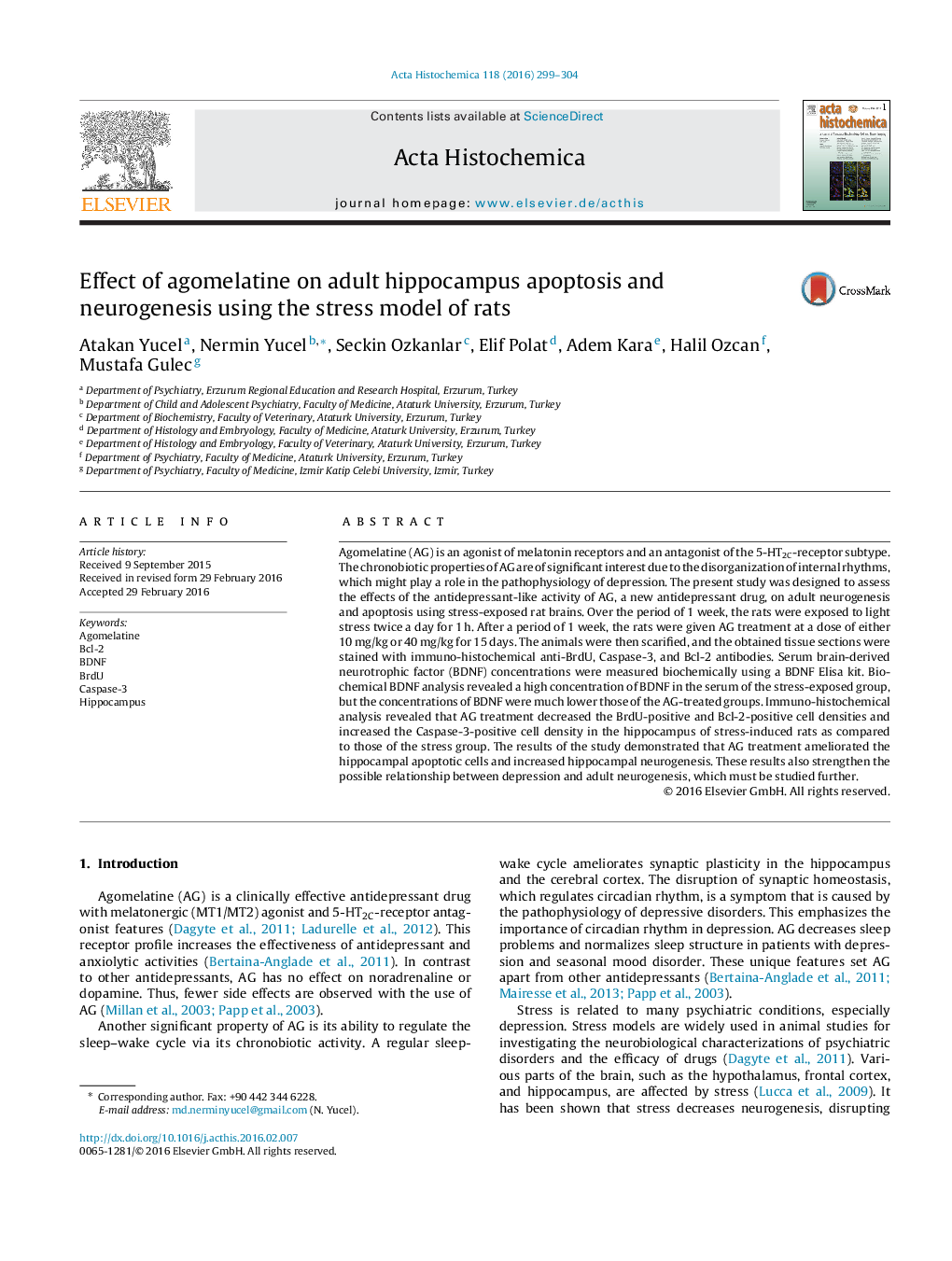| Article ID | Journal | Published Year | Pages | File Type |
|---|---|---|---|---|
| 1923330 | Acta Histochemica | 2016 | 6 Pages |
Abstract
Agomelatine (AG) is an agonist of melatonin receptors and an antagonist of the 5-HT2C-receptor subtype. The chronobiotic properties of AG are of significant interest due to the disorganization of internal rhythms, which might play a role in the pathophysiology of depression. The present study was designed to assess the effects of the antidepressant-like activity of AG, a new antidepressant drug, on adult neurogenesis and apoptosis using stress-exposed rat brains. Over the period of 1 week, the rats were exposed to light stress twice a day for 1Â h. After a period of 1 week, the rats were given AG treatment at a dose of either 10Â mg/kg or 40Â mg/kg for 15 days. The animals were then scarified, and the obtained tissue sections were stained with immuno-histochemical anti-BrdU, Caspase-3, and Bcl-2 antibodies. Serum brain-derived neurotrophic factor (BDNF) concentrations were measured biochemically using a BDNF Elisa kit. Biochemical BDNF analysis revealed a high concentration of BDNF in the serum of the stress-exposed group, but the concentrations of BDNF were much lower those of the AG-treated groups. Immuno-histochemical analysis revealed that AG treatment decreased the BrdU-positive and Bcl-2-positive cell densities and increased the Caspase-3-positive cell density in the hippocampus of stress-induced rats as compared to those of the stress group. The results of the study demonstrated that AG treatment ameliorated the hippocampal apoptotic cells and increased hippocampal neurogenesis. These results also strengthen the possible relationship between depression and adult neurogenesis, which must be studied further.
Related Topics
Life Sciences
Biochemistry, Genetics and Molecular Biology
Biochemistry
Authors
Atakan Yucel, Nermin Yucel, Seckin Ozkanlar, Elif Polat, Adem Kara, Halil Ozcan, Mustafa Gulec,
